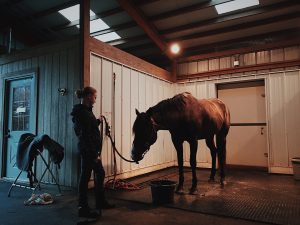
Everyone knows the adage that change is the only constant in life. This month I will share some observations about an exception to that generally accurate rule. One major aspect of animal welfare is animal sheltering, sometimes called, “animal rescue.” Formal animal sheltering generally means the operation of a bricks and mortar facility where animals are housed and receive necessary care, including veterinary services. To be sure, there are animal shelters that rely solely on foster homes and do not maintain a physical plant to house animals; many of those are very successful organizations that save thousands of animals from abuse, neglect or abandonment. Some facilities focus their energies on providing lifetime care to the animals; those shelters that do not try to re-home or adopt animals into new circumstances are operating animal sanctuaries. Other organizations have permanent adoption of animals as a primary goal or mission and derive many donors or supporters from their adopter community. One commonality of all successful true animal shelters or sanctuaries is the presence of a vital force – volunteers. That is a constant that does not change.
Volunteers are the essence and energy of animal sheltering here at the Maine State Society for the Protection of Animals. At present the MSSPA, which is open and caring for horses seven days per week, has an active group of hundreds of volunteers, managed by a full time volunteer coordinator and a part time assistant volunteer coordinator. Without the efforts of its volunteers, this horse shelter would not function as it does, successfully caring for dozens of once-abused horses in various stages of rehabilitation and training. On a typical day, this shelter may have as many as 25 or thirty volunteers on site. Some arrive early in the work day, sign into the volunteer log book, grab their water bottle and head to the barns. There, volunteers will regularly be found helping the shelter staff by mucking and bedding stalls with fresh shavings, scrubbing feed tubs and water buckets, cleaning grooming tools, and distributing hay into stalls. Volunteers with horse experience may assist in getting the horses from stall to turnout or administration of medicines as needed. Still other volunteers report to the barn manager for an assignment of working with staff on hay loft cleaning, fence repair or painting, mowing, weed whipping, and general maintenance of the 124 acre farm property. There are even volunteer gardeners who delight in sharing their skills by cultivating the flowers, shrubs, and grounds, making the property inviting to the visiting public.
 One group of volunteers may head to the janitor’s closet in the Keddy Arena Building and, armed with vacuum, mop and pails, along with necessary supplies, spend their valuable time helping to keep the bathrooms, kitchen, classroom, and all areas of the multi-purpose building sparkling clean. Some volunteers take their places at computer work stations and perform data entry, bookkeeping, and assist with other office tasks that are essential to the smooth operation of the shelter. On weekends, MSSPA volunteers help with hosting of birthday parties that are offered for a fee and include a children’s pony ride, humane education, and an equine-themed craft.
One group of volunteers may head to the janitor’s closet in the Keddy Arena Building and, armed with vacuum, mop and pails, along with necessary supplies, spend their valuable time helping to keep the bathrooms, kitchen, classroom, and all areas of the multi-purpose building sparkling clean. Some volunteers take their places at computer work stations and perform data entry, bookkeeping, and assist with other office tasks that are essential to the smooth operation of the shelter. On weekends, MSSPA volunteers help with hosting of birthday parties that are offered for a fee and include a children’s pony ride, humane education, and an equine-themed craft.
Some of the MSSPA volunteers create “kindred” fundraising activities, holding parties or events to benefit the shelter. Others help with raising the organization’s visibility by tabling at community events such as farmers’ markets or craft fairs.
Meanwhile, experienced staffers handle the horses for the various farriers and veterinarians who service horses at the shelter. Skilled staff work directly with the horses, training them as necessary in basic manners, ground work, riding or driving as may be appropriate to the condition of each individual horse. Staff also work alongside the Society’s many volunteers to teach and learn one another’s skills.
The Society hosts a unique group of female volunteers from the nearby Southern Maine Women’s Re-Entry Center. Each day as many as eight incarcerated women from the Center are transported to River Road Farm to help with the heavy chores and operation of the shelter. For many it is a therapeutic volunteer opportunity, for some it is a life-changing experience as their recovery from abuse or drug use parallels the rehabilitation of the horses. One incarcerated volunteer expressed her feelings by saying, “When the horses come here, they are broken and beat down. That is what we are like when we come to prison. Here at the shelter, we learn that recovery is possible for the horses and for ourselves as well. We love it here.”
Volunteers are a constant in the daily life of animal sheltering and we don’t want that to ever change. Without the constant generosity of time and talent volunteers bring, the MSSPA would not be able to provide the horses here with the superior quality of care and recovery they deserve and receive. Volunteers also often become donors and deepen their connection to the animals in shelter here.
You can learn more about volunteering and complete a volunteer application by visiting the MSSPA website at MSSPA.org. Click the volunteer link at the top of the home page.
You are invited to visit the horses at Maine State Society for the Protection of Animals in South Windham. New England’s premier horse shelter is open to the public every day – from 1 PM – 4 PM. No admission, plenty of parking, and gorgeous, rehabilitated horses to visit with you. As always, if you are hoping to acquire a horse of your own, please remember, “Don’t shop – adopt!”






